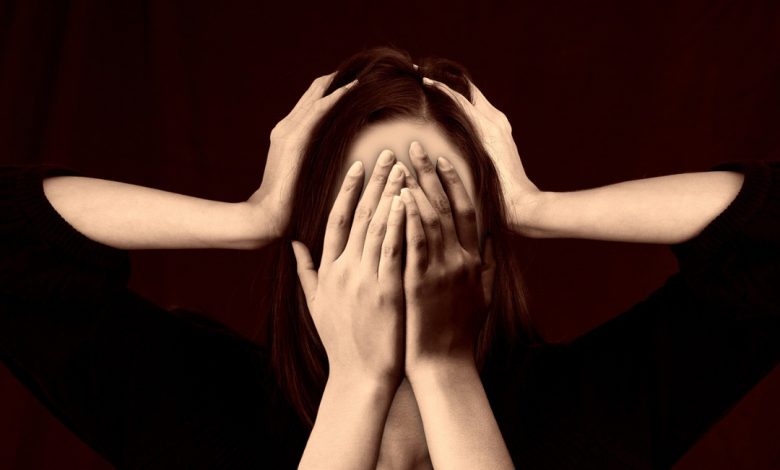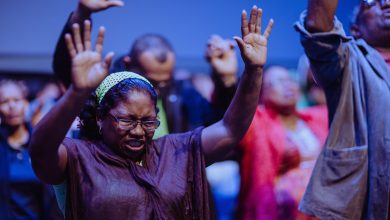Can a Bipolar Person be Faithful?

Millions of people all over the world struggle with bipolar disorder. It is characterized by manic highs and depressive lows, and can have far-reaching effects on a person’s life and faith. The question of whether or not a person with bipolar disorder can remain faithful to God is nuanced and deserves careful examination. Here, we’ll examine how bipolar disorder interacts with religious belief and offer advice for people who are having trouble making peace with both.
Can a Bipolar Person be Faithful?
Bipolar disorder has a significant impact on one’s religious beliefs, but one must first comprehend the nature of the disorder to fully grasp the issue. Manic highs and depressive lows are hallmarks of bipolar disorder. Manic episodes are characterized by elevated mood, increased activity, and potentially dangerous acts of indecision or recklessness. A depressive episode can cause a person to feel helpless, lose interest in life, and struggle with overwhelming feelings of sadness and despair.
Bipolar disorder can sometimes lead to severe difficulties in functioning. For someone with bipolar disorder, even the simplest tasks, like getting out of bed in the morning, can feel like an insurmountable obstacle. It can be very challenging for both the person with bipolar disorder and their loved ones to manage the illness’ extreme highs and lows.
The Role of Faith in Bipolar Disorder
Many people who suffer from bipolar disorder attribute much of their stability to their religious beliefs. People with bipolar disorder often find that their religious beliefs provide a sense of solace and strength as they face the difficulties of living with the disorder.
Belief in something larger than yourself can give your life meaning and direction, even in the midst of difficulty. People with bipolar disorder may feel helpless and hopeless when dealing with symptoms. But their faith can help them take a step back and see the bigger picture, which will give them a reason to hope even in the darkest of times.
The sense of community and belonging that people of faith often experience is another way in which faith can help those with bipolar disorder. During periods of mania or depression, many people with bipolar disorder find solace and support in their religious communities. People with bipolar disorder can benefit from having a strong support system of people who understand their struggles.
Faith can aid those with bipolar disorder in many ways, but one of the most crucial is by providing coping mechanisms. People with bipolar disorder can find relief from their symptoms and inner calm through spiritual practices like prayer, worship, and Bible reading.
To many people who suffer from bipolar disorder, their religious beliefs serve as more than just a crutch; they’re also a source of hope and strength. Faith, for many people with the illness, is what gives them the strength to keep going even when life is difficult. People with bipolar disorder often find that their faith helps them to see the beauty in life, despite struggling with symptoms, whether that beauty is in a sunset, a sense of wonder in the stars, or simply the courage to get out of bed in the morning.
Challenges in Being Faithful to God with Bipolar Disorder
Faith, despite its positive effects, can be a source of stress and difficulty for people with bipolar disorder. Maintaining one’s faith is difficult for people with bipolar disorder due to a number of factors, including:
- Mood Swings: During manic or depressive episodes, people with bipolar disorder often experience extreme shifts in their mood, making it difficult to maintain religious practices and beliefs. Lack of self-control and erratic behavior are symptoms of manic episodes that can make it difficult to uphold religious tenets and practices. Similarly, it may be challenging to develop a relationship with God when experiencing depressive episodes due to the accompanying sadness and hopelessness.
- Stigma: To make matters more complicated, those with bipolar disorder may also face discrimination and stigma from their faith communities. It can be difficult to keep a close relationship with God when one is experiencing feelings of shame and isolation as a result of this.
- Difficulty in Daily Life: Bipolar disorder can make even the simplest things, like getting out of bed in the morning, difficult. Keeping a solid faith practice and a close relationship with God can be challenging in the face of these difficulties.
Despite these difficulties, there are strategies available for coping with bipolar disorder and keeping one’s faith intact. People with bipolar disorder can find solace and peace in their faith by reaching out for help from family and friends, and religious communities, taking care of themselves and strengthening their relationship with God through prayer and worship.
Overcoming the Challenges
There is hope for those with bipolar disorder who want to remain devoted Christians despite the difficulties the disorder can cause. Some concrete measures that can be taken are as follows:
- Build a supportive system: One of the most helpful things you can do to cope with bipolar disorder and keep your faith in God is to surround yourself with positive people. These can be people from your own social circle or from your religious group.
- Practice Self-Care: Self-care is an integral part of managing bipolar disorder and keeping one’s faith in God strong. Ample rest, nutritious meals, and regular exercise are all examples of what this means. Maintaining a spiritual connection can be facilitated by practicing self-care, which can alleviate stress and boost health.
- Visit a specialist: Bipolar disorder is a complex illness, and it’s best to get professional help managing symptoms and maintaining spiritual stability. Medications, psychotherapy, and other forms of treatment may fall into this category.
- Pray your way through: Maintaining your faith while living with bipolar disorder is all about staying connected to God through prayer, worship, and study of the Bible. Whether through prayer, worship, or reading Scripture, cultivating a relationship with God can bring about serenity, solace, and direction in life.
- Have Patience and Forgiveness for Yourself: Having faith while dealing with bipolar disorder requires patience and forgiveness. Although it may be challenging to maintain religious observances throughout the highs and lows of illness, it is essential to be patient with oneself and to keep in mind that God is always there to provide comfort and love.
Conclusion
The question of whether or not a person with bipolar disorder can still be faithful to God is, in the end, a nuanced and nuanced one, and it merits careful examination. Even though people with bipolar disorder may face difficulties in maintaining their faith, they often find solace and strength in their religious communities and a renewed sense of purpose in their relationships with God. People with bipolar disorder should keep their faith and keep reaching out for help, no matter what. People with bipolar disorder can live meaningful lives and deepen their faith in God with the help of the appropriate resources.
Keep in mind that no matter how bad things get, there is always hope, and God is always there to comfort and support you. Whether you or a loved one are dealing with bipolar disorder, it is vital that you never lose sight of God’s unending love and compassion for you.





